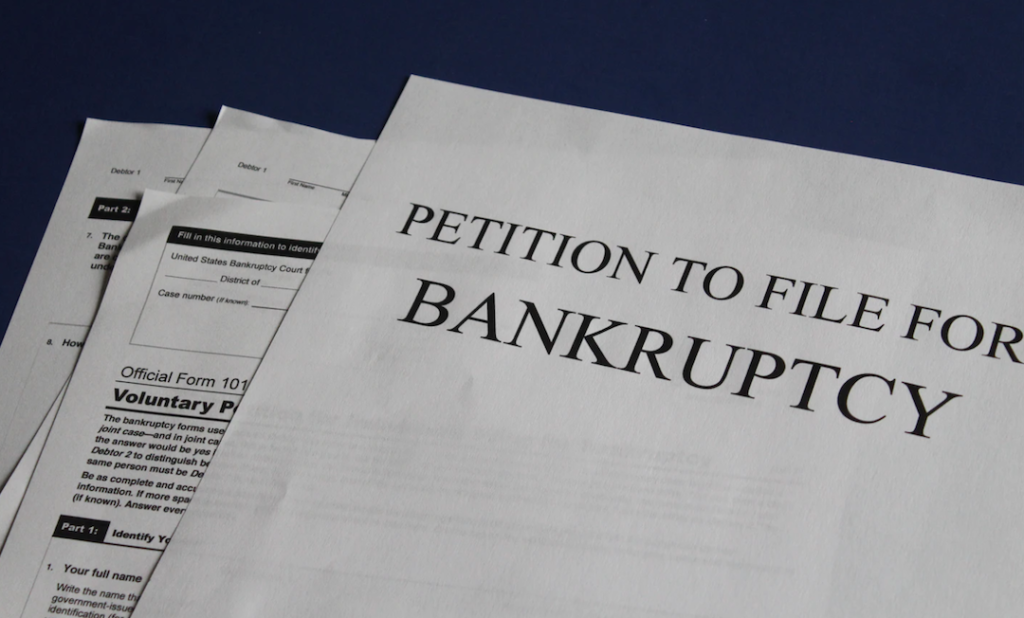Guest Blog: A Path to a Financial Fresh Start for Survivors

Domestic violence can take a number of forms, but there’s one thing that 99% of domestic violence cases have in common: An element of financial abuse.
If you haven’t been in full control of your finances and are worried about being trapped by debt even after you’ve distanced yourself from an abuser, know that filing bankruptcy can make a financial fresh start possible. This article will demystify bankruptcy and provide an overview of how survivors can use the bankruptcy court system to regain control of their financial future.
First things first: Bankruptcy won’t ruin your credit forever.
The bankruptcy system is designed to give the “honest but unfortunate” debtor a fresh start. It’s meant to level the playing field between the debtor (you) and creditors. Yes, it does have an impact on your credit score. If you have a high score when filing, it will almost certainly drop. But that’s not the situation that most bankruptcy filers find themselves in. Most have OK-to-bad credit when their case is filed and eliminating their credit card and other debts actually makes building a good credit history easier.
If you’re not sure what your credit report looks like these days, you can get a free credit report from each of the three credit reporting agencies (Experian, TransUnion, and Equifax). All you need is your social security number. Annual CreditReport.com is authorized by federal law to process these requests, so you can trust them with your information.
How Bankruptcy Works
All bankruptcy cases start with the filing of a bankruptcy petition. As soon as the bankruptcy court receives and processes your petition, you’re protected by a bankruptcy law provision called the “automatic stay.” This protection means your creditors – in other words, anyone who thinks you owe them money – are banned from contacting you. All collection efforts have to stop.
What happens next depends on the type of bankruptcy case that’s been filed. Most people file Chapter 7 bankruptcy. In a typical Chapter 7 case, the bankruptcy court grants the filer a discharge of most of their debts in about 3 – 4 months. Although Chapter 7 bankruptcy is called a “liquidation bankruptcy” by some, most filers are able to keep all of their belongings using bankruptcy exemptions. Exemptions are laws that protect your property from creditors – and the bankruptcy trustee – and assuming you don’t have anything extraordinarily valuable, chances are all of your property will be protected in a bankruptcy filing.
There are Chapter 7 income limits to prevent high wage earners from filing. But even then, bankruptcy relief is possible in the form of a Chapter 13 case. Chapter 13 bankruptcy involves a 3 – 5 year repayment plan. It has definite advantages, especially for homeowners and folks with expensive property they want to keep, but it’s not right for everyone.
Staying Safe
A bankruptcy filing is part of the public record. This means that generally speaking, the filer’s name and address can be viewed by anyone looking for it. But there are steps you can take to protect yourself and your family. For example, you can provide the court with a PO Box for a mailing address and take steps to keep your residential address off the court’s public docket.
For more tips on protecting yourself when going to court and how to approach the problem of not having access to all of the information you need, see How to get debt relief without risking your safety.
The Bankruptcy Discharge
In both Chapter 7 and Chapter 13, the bankruptcy court grants the debtor a discharge. This is a court order that bans all of your creditors from trying to collect money from you ever again. It’s like the debt never existed. Of course, both the original debt and the bankruptcy filing will remain on your credit report, but there are steps you can take to ensure that won’t hold you back going forward.
Bankruptcy is often portrayed in a negative light but it shouldn’t be. It can be (and for many is) a lifeline to get out of debt they had no control over in the first place. It’s not right for everyone or every situation, but everyone is different. Only you can decide whether filing bankruptcy is the right step for you. Most bankruptcy attorneys provide free consultations for bankruptcy matters, and that’s often a great way to learn more about your options. Keep in mind, though, if you can’t afford a lawyer, you don’t have to hire one.
This guest blog is written for Genesis Women’s Shelter by Upsolve, a nonprofit organization that empowers qualifying individuals to file Chapter 7 bankruptcy without a lawyer by providing them with a free tool to prepare their bankruptcy forms and educational content written for non-lawyers. An active community of Upsolvers provides support for one another on Facebook.
